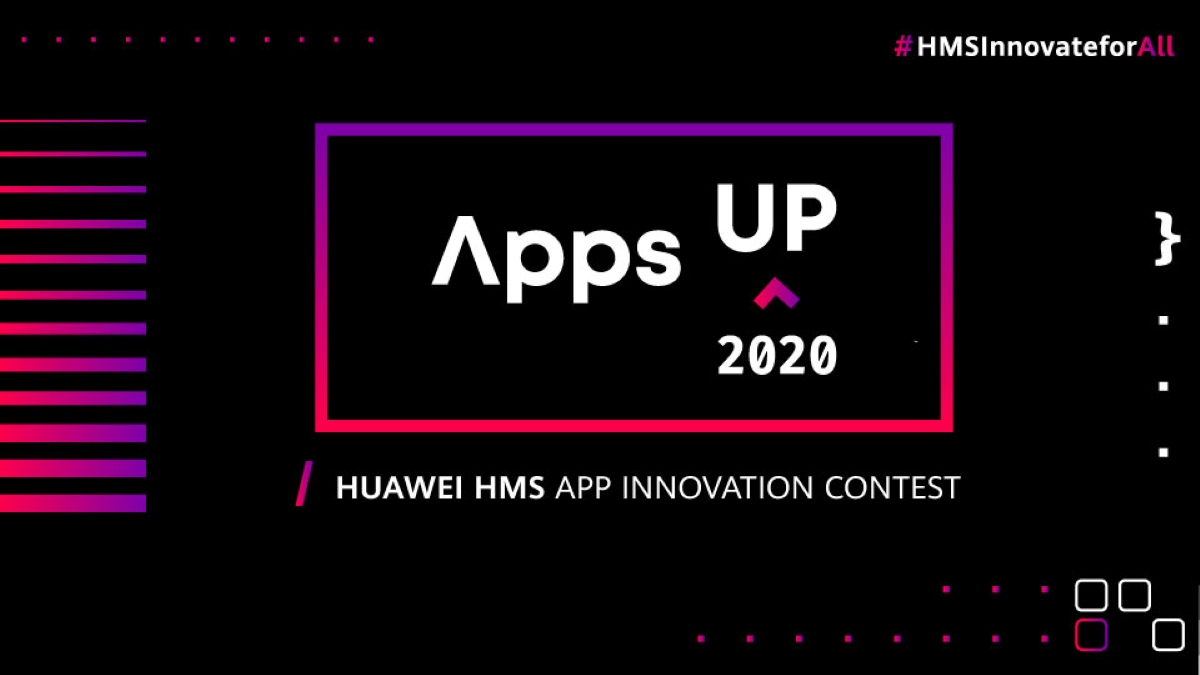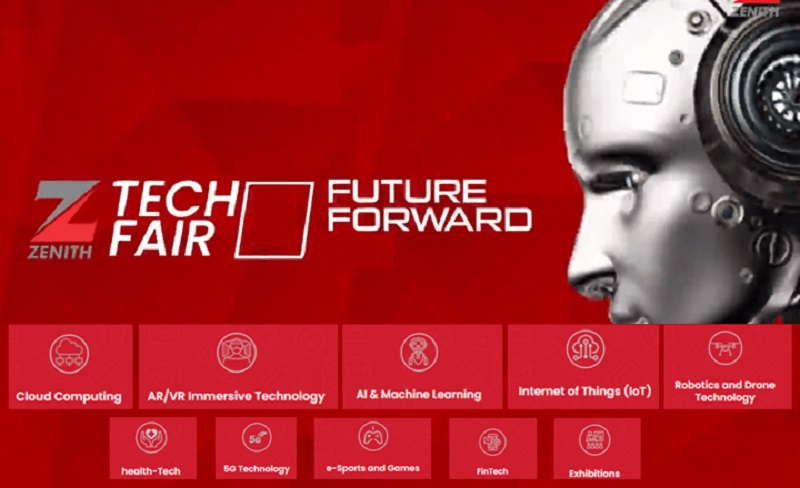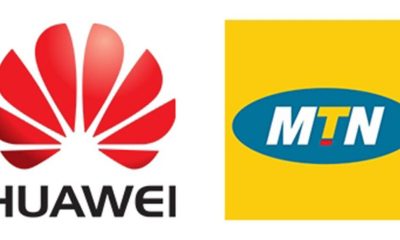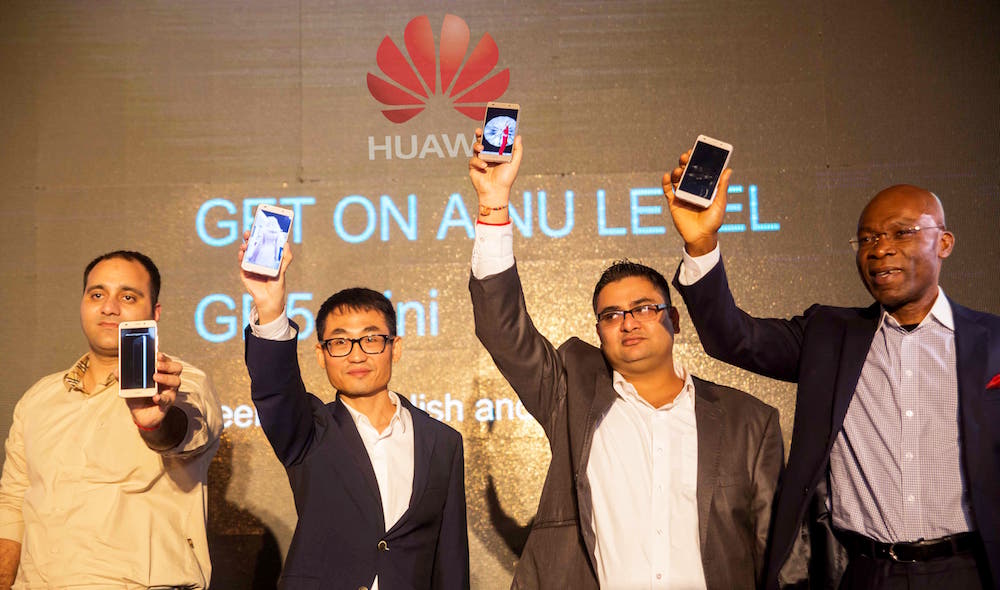Technology
Huawei Unveils Winners of App Innovation Contest

By Adedapo Adesanya
Mobile phone giant, Huawei, has announced the winning entries for its Huawei HMS App Innovation Contest, stylised as AppsUP, with developers from across the regions impressing judges with their innovative approaches to app creation.
Participants were encouraged to push the full potential of HMS Core and innovative new experiences for Huawei device users.
The inaugural competition challenged app developers across the Middle East and Africa (MEA) region and beyond to create exciting applications that help people in their daily lives.
The winners from the MEA region will share $200,000 cash prizes in total, funded by Huawei’s Shining-Star Programme.
The Huawei HMS App Innovation Contest evaluated more than 150 mobile applications from five regions: Europe, Asia Pacific, Middle East & Africa, Latin America and China.
The successful entries were shortlisted due to the creativity and the imagination their apps showcased.
The MEA region category winners hope their success can inspire more people to develop apps and help grow the region’s eco-system.
The apps were placed in regional sections and split between six categories and tje Middle East and Africa (MEA) category winners were:
MEA App of the Year x 1: AMAN from Jordan
Best App x 5: My Pregnancy Journey App from South Africa, Almosally App from Egypt, Deaf Sign Language App (ASL) from Pakistan, Med from Tunisia, Women Workout from Morocco.
Best Game x 3: FPS Encounter Shooting 2020: New Shooting Games from Pakistan, Bike Stunt Race Master Motorcycle Game from Pakistan, and Gauntlet from South Africa.
Best Social Impact App x 3: My Pregnancy Journey App from South Africa, Deaf Sign Language App (ASL) from Pakistan, and Almosally from Egypt.
Most Popular App x 1 (according to the download & voting): Almosally from Egypt.
Honorable Mention x 12: Slug Hunter from South Africa, Color FIll Puzzle from Algeria, Load Shedding Notifier from South Africa, RafiQ from Algeria, 9arib from Egypt, Colorwheel from Egypt, Katamars + Orsozoxi from Egypt, Decipher Word from Morocco, photo editor from Morocco, Message of happiness from Egypt, Q Dictionary from Egypt, and Ordera from Egypt.
The winners will share in a regional prize money allocation of $200,000 as part of the total $1 million from the Shining Star developer program for the competition.
The top five apps receive $15,000 each; the top three games get $15,000; the top three apps with the best social impact are awarded $15,000; The most popular app will win $5,000, while the 12 honorable mentions receive $2,500 each.
From the Best App category, My Pregnancy Journey app developer from South Africa commented: “Being part of the global Huawei Apps Up Contest has been a great journey for us and we are very excited about the future.
“Huawei does so much for tech entrepreneurs like myself. This award is going to change the course of our app and now finally we can start becoming a global contender and start making that social impact that we so badly want to do.”
From the Best Game category, the South African Developer of the game, Gauntlet commented: “We entered Gauntlet into Huawei Apps Up 2020 Contest because what the contest was offering in terms of learning and exposure was invaluable. The opportunity to take our games to the next level was something we couldn’t ignore.
“We had our biggest successes to date on the Huawei AppGallery. And the Apps Up 2020 Contest format was fantastic. What truly helped us integrate HMS Kits into our games was the official and available resources from Huawei.
“We found the official documentation was the best source. We stuck with that and it paid off. And the local support from Huawei was unmatched. For Gauntlet, we incorporated the Huawei Ads Kit, Account Kit, and Game Kit, among others, to allow users to more easily connect with the game and create a more engaging experience. I just want to extend my gratitude to everyone in Huawei.”
Speaking on the honours, the Managing Director, HMS and Consumer Cloud Service for Huawei Consumer Business Group MEA, Mr Adam Xiao, said: “The category winners of the inaugural Huawei HMS App Innovation Contest, AppsUP fully deserve their success. Developers in the MEA region impressed judges with the creativity and innovation seen in their apps.
“By using the power of HMS Core, developers were able to create unique experiences for Huawei users that help them in their daily lives. We hope that their success can inspire a new generation of app developers in the MEA region to push their imaginations and skills and create exciting experiences for Huawei device users.”
The HMS ecosystem and Huawei AppGallery is already bringing new content and digital services to over 700 million Huawei users in 170+ countries and regions.
Technology
Leticia Otomewo Becomes Secure Electronic Technology’s Acting Secretary

By Aduragbemi Omiyale
One of the players in the Nigerian gaming industry, Secure Electronic Technology (SET) Plc, has appointed Ms Leticia Otomewo as its acting secretary.
This followed the expiration of the company’s service contract with the former occupier of the seat, Ms Irene Attoe, on January 31, 2026.
A statement to the Nigerian Exchange (NGX) Limited on Thursday said Ms Otomewo would remain the organisation’s scribe in an acting capacity, pending the ratification and appointment of a substantive company secretary at the next board meeting.
She was described in the notice signed by the Managing Director of the firm, Mr Oyeyemi Olusoji, as “a results-driven executive with 22 years of experience in driving business growth, leading high-performing teams, and delivering innovative solutions.”
The acting secretary is also said to be “a collaborative leader with a passion for mentoring and developing talent.”
“The company assures the investing public that all Company Secretariat responsibilities and regulatory obligations will continue to be discharged in full compliance with the Companies and Allied Matters Act, applicable regulations, and the Nigerian Exchange Limited Listing Rules,” the disclosure assured.
Meanwhile, the board thanked Ms Attoe “for professionalism and contributions to the Company during the period of her engagement and wishes her well in her future endeavours.”
Technology
Russia Blocks WhatsApp Messaging Service

By Adedapo Adesanya
The Russian government on Thursday confirmed it has blocked the WhatsApp messaging service, as it moves to further control information flow in the country.
It urged Russians to use a new state-backed platform called Max instead of the Meta-owned service.
WhatsApp issued a statement earlier saying Russia had attempted to “fully block” its messaging service in the country to force people toward Max, which it described as a “surveillance app.”
“Today the Russian government attempted to fully block WhatsApp in an effort to drive people to a state-owned surveillance app,” WhatsApp posted on social media platform X.
“Trying to isolate over 100 million users from private and secure communication is a backwards step and can only lead to less safety for people in Russia,” it said, adding: “We continue to do everything we can to keep users connected.”
Russia’s latest move against social media platforms and messaging services like WhatsApp, Signal and Telegram comes amid a wider attempt to drive users toward domestic and more easily controlled and monitored services, such as Max.
Russia’s telecoms watchdog, Roskomnadzor, has accused messaging apps Telegram and WhatsApp of failing to comply with Russian legislation requiring companies to store Russian users’ data inside the country, and of failing to introduce measures to stop their platforms from being used for allegedly criminal or terrorist purposes.
It has used this as a basis for slowing down or blocking their operations, with restrictions coming into force since last year.
For Telegram, it may be next, but so far the Russian government has been admittedly slowing down its operations “due to the fact that the company isn’t complying with the requirements of Russian legislation.”
The chat service, founded by Russian developers but headquartered in Dubai, has been a principal target for Roskomnadzor’s scrutiny and increasing restrictions, with users reporting sluggish performance on the app since January.
Technology
Nigerian AI Startup Decide Ranks Fourth Globally for Spreadsheet Accuracy

By Adedapo Adesanya
Nigerian startup, Decide, has emerged as the fourth most accurate Artificial Intelligence (AI) agent for spreadsheet tasks globally, according to results from SpreadsheetBench, a widely referenced benchmark for evaluating AI performance on real-world spreadsheet problems.
According to the founder, Mr Abiodun Adetona, the ranking places Decide alongside well-funded global AI startups, including Microsoft, OpenAI, and Anthropic.
Mr Adetona, an ex-Flutterwave developer, also revealed that Decide now has over 3,000 users, including some who are paying customers, a signal to the ability of the startup to scale in the near future.
SpreadsheetBench is a comprehensive evaluation framework designed to push Large Language Models (LLMs) to their limits in understanding and manipulating spreadsheet data. While many benchmarks focus on simple table QA, SpreadsheetBench treats a spreadsheet as a complex ecosystem involving spatial layouts, formulas, and multi-step reasoning. So far, only three agents rank higher than Decide, namely Nobie Agent, Shortcut.ai, and Qingqiu Agent.
Mr Adetona said SpreadsheetBench measures how well AI agents can handle practical spreadsheet tasks such as writing formulas, cleaning messy data, working across multiple sheets, and reasoning through complex Excel workflows. Decide recorded an 82.5% accuracy score, solving 330 out of 400 verified tasks.
“The result reflects sustained investment in applied research, product iteration, and learning from real-world spreadsheet workloads across a wide range of use cases,” Mr Adetona told Business Post.
For Mr Adetona, who built Decide out of frustration with how much time professionals spend manually cleaning data, debugging formulas, and moving between sheets, “This milestone highlights how focused engineering and domain-specific AI development can deliver frontier-level performance outside of large research organisations. By concentrating on practical business data problems and building systems grounded in real user environments, we believe smaller teams can contribute meaningfully to advancing applied AI.”
“For Decide, this is a foundation for continued progress in intelligent spreadsheet and analytics automation,” he added.
-

 Feature/OPED6 years ago
Feature/OPED6 years agoDavos was Different this year
-
Travel/Tourism10 years ago
Lagos Seals Western Lodge Hotel In Ikorodu
-

 Showbiz3 years ago
Showbiz3 years agoEstranged Lover Releases Videos of Empress Njamah Bathing
-

 Banking8 years ago
Banking8 years agoSort Codes of GTBank Branches in Nigeria
-

 Economy3 years ago
Economy3 years agoSubsidy Removal: CNG at N130 Per Litre Cheaper Than Petrol—IPMAN
-

 Banking3 years ago
Banking3 years agoSort Codes of UBA Branches in Nigeria
-

 Banking3 years ago
Banking3 years agoFirst Bank Announces Planned Downtime
-

 Sports3 years ago
Sports3 years agoHighest Paid Nigerian Footballer – How Much Do Nigerian Footballers Earn



















